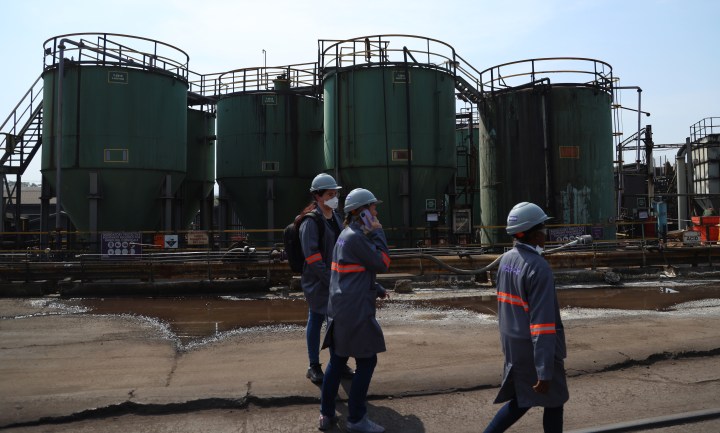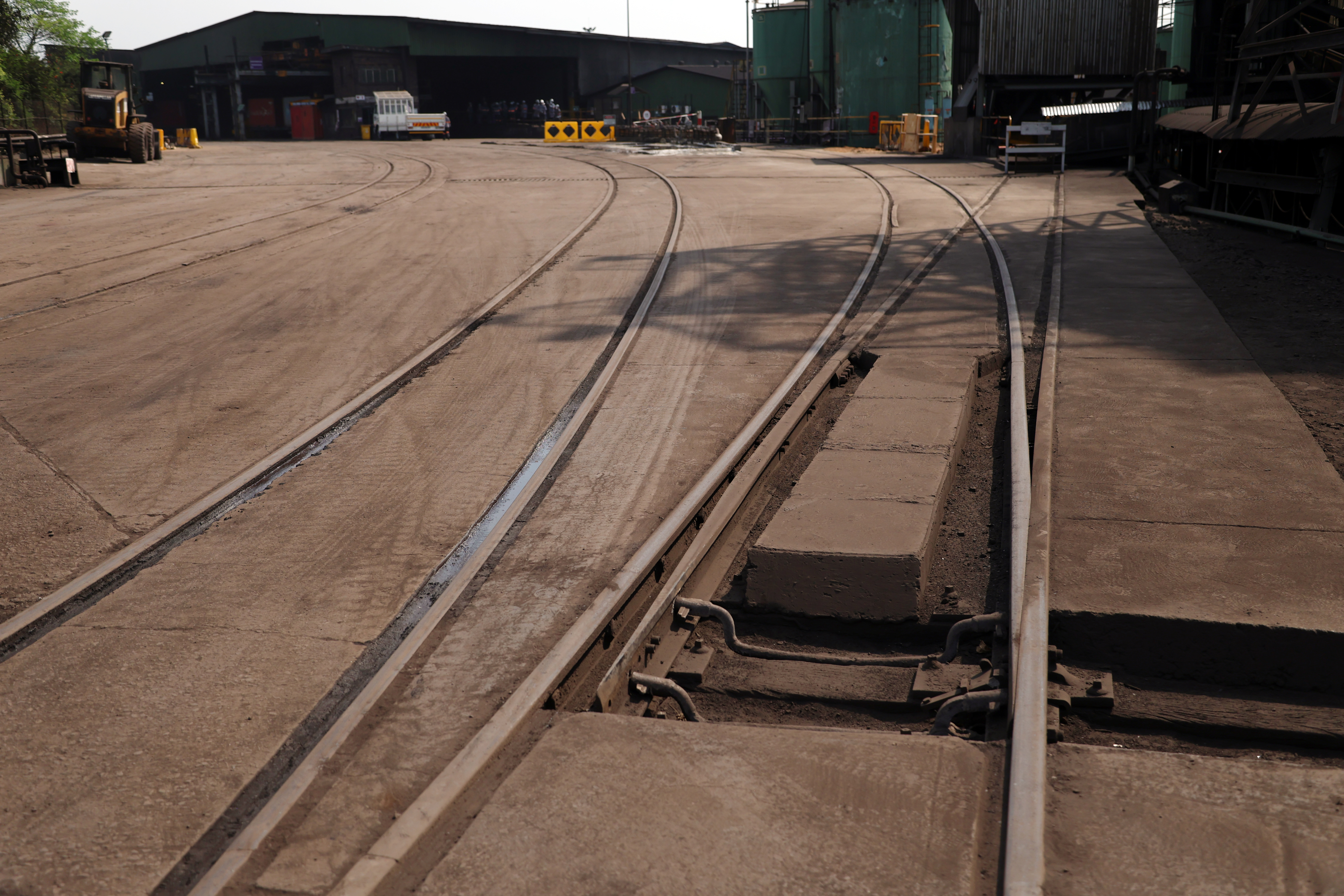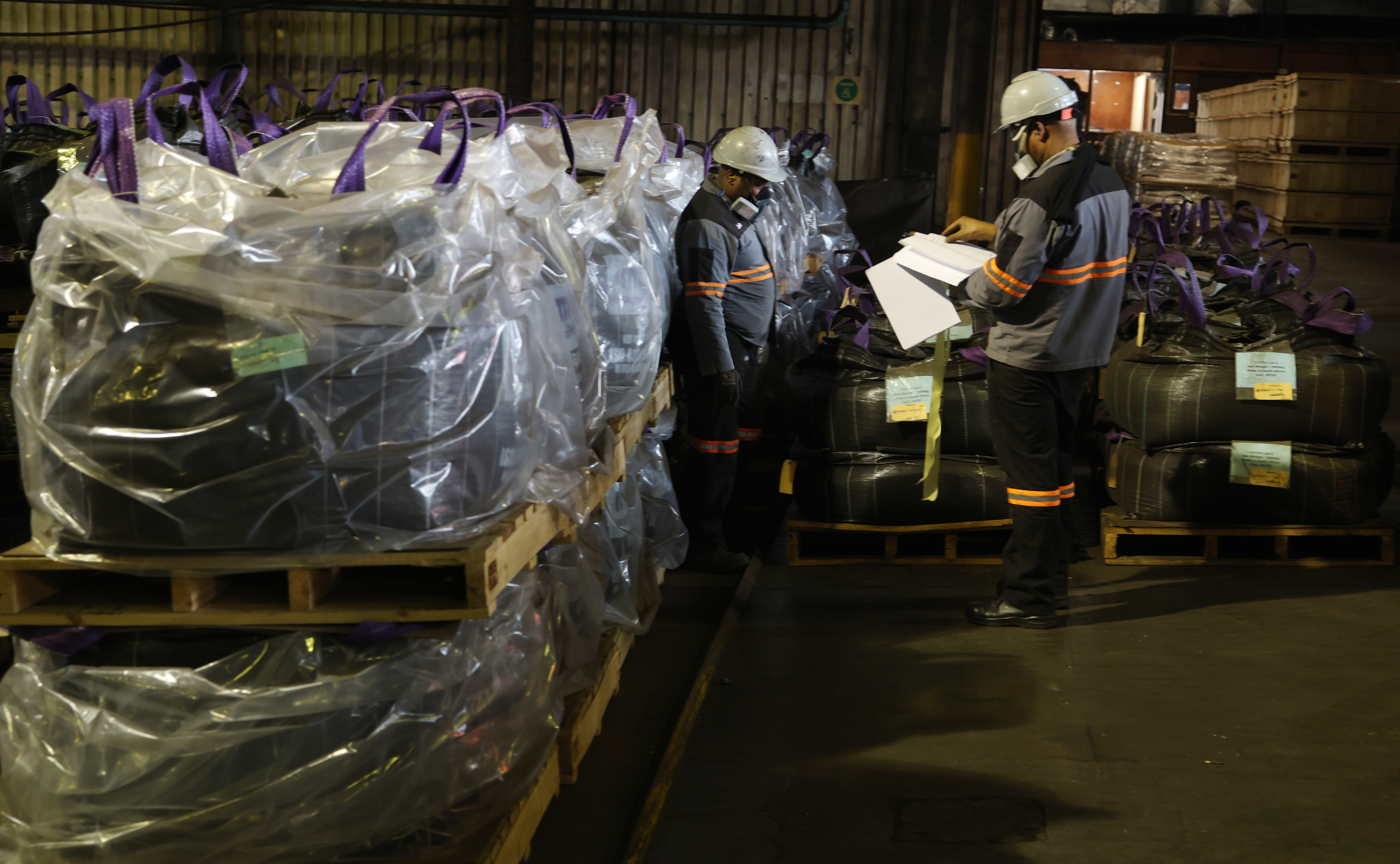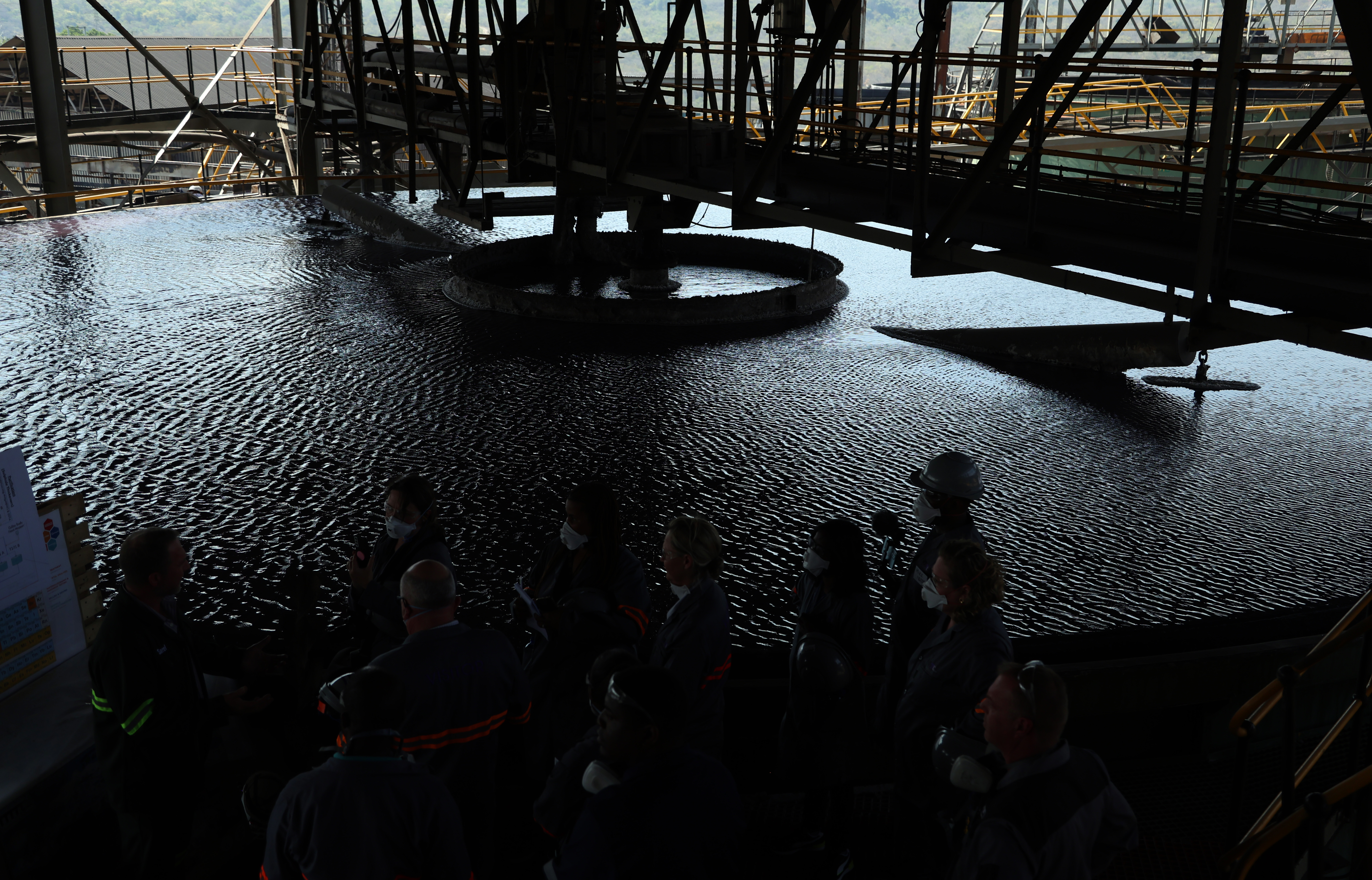BUSINESS MAVERICK
Mbombela manganese plant is emblematic of South Africa’s now potholed industrial journey

Built almost 50 years ago, long before the loaded term ‘beneficiation’ became part of South Africa’s public discourse, the MMC manganese plant in Mbombela mirrors South Africa’s journey to industrialisation and subsequent U-turn down the potholed road of de-industrialisation.
A railway track snakes its way to a loading bay where one-tonne bags of manganese flakes are loaded onto containers for export at a Mbombela plant operated by the Manganese Metal Co (MMC).
None of the manganese will move along the skeletal track, which has fallen into disuse as a consequence of the unfolding meltdown at state-run logistics company Transnet. It is destined to be trucked to Maputo or Durban for export to Japan, the US and Europe.
“This plant was originally built because of the rail line. Now we have to move everything by road,” Morne Buitendag, MMC product manager, told Daily Maverick as a forklift loaded the bags of finished product onto a container.
South Africa has by far the largest reserves in the world of manganese. Lying next to iron on the periodic table, it is a crucial ingredient for the making of steel, aluminum and the batteries needed to decarbonise the global economy.
Yet MMC is the only plant in the world outside of China that refines local manganese, and its story mirrors South Africa’s industrialisation journey and subsequent U-turn down the potholed road of de-industrialisation.
Located on the edge of Mbombela 930km from where the manganese is extracted at Hotazel in the Northern Cape, its curious location is explained by two factors that drove South Africa’s industrialisation in the 20th century: proximity to a functioning rail line that stretched to the Northern Cape as well as the nearby power grid linked to the Mpumalanga coal fields.

Rail tracks transporting raw material out of the Manganese Minerals Comapny in Nelspruit on 08 Septemeber 2023.(Photo: Felix Dlangamandla)
It was built with seed capital from the Industrial Development Corporation (IDC) with the explicit goal of bringing industrialisation to a corner of Mpumalanga which at the time was almost completely dependent on tourism and agriculture.
In 2015, 39% of MMC’s product went to steel production, and that has since declined to 30%. Meanwhile, demand on the battery front has risen to 26% of its product from only 8% in 2015.
The railway in recent years has become unreliable as Transnet has fallen into a shambles, its key infrastructure a constant target of predatory criminal syndicates, and the proximity to Eskom coal plants is no longer an advantage as the lights dim on South Africa’s former industrial star.
Who would build one there today?
“Would we build a R5-billion plant here today?” Bernard Swanepoel, the colourful former CEO of Harmony Gold, who is a shareholder in privately held MMC, asked at an “Open Day” at the plant on Friday, 8 September.
This was left unanswered but the answer would obviously be no.
But the MMC plant does highlight the point that South Africa has the technical expertise, including chemical engineers, to add value to its manganese endowment at a time when demand for the commodity is set to soar because of its role in battery production.

Employees preparing final product to load in contatiners for shipment at the Manganese Minerals Comapny in Nelspruit on 08 Septemeber 2023.(Photo: Felix Dlangamandla)
This correspondent’s head was left spinning by the chemistry lectures given during a tour of the facility, a sprawling and hi-tech affair with a network of pipes, monstrous vats and labs.
According to a presentation delivered at the Open Day, MMC produces 28,000 tonnes of refined manganese a year.
The process of refining without selenium has less of an impact on the environment while “protecting the health of its employees”, the company says on its website. MMC only accounts for about 3% of global production but is the world’s largest producer of selenium-free electrolytic manganese metal. The end product is 99.9% pure manganese.
If the flow was halted there was a risk that the tanks would overflow into a nearby tributary of the Crocodile River which flows into the Kruger National Park.
The plant employs 400 people plus 200 contractors. In terms of exports, 56% goes to Japan, 25% to the US, 10% to Europe, and 4% is sold in South Africa.
It runs 24/7, 365 days of the year. If it has to shut down for any reason, the costs of restarting it are simply not feasible, and it would be an arduous technical exercise, Madelein Todd, MCC’s chief marketing officer, explained during a Q&A.
Such an event would also have serious ecological consequences.
Buitendag told Daily Maverick that the flow rate needed to be maintained at the plant and if this was halted there was a risk that the tanks would overflow into a nearby tributary of the Crocodile River which flows into the Kruger National Park.

Sulphide purification tanks at the Manganese Minerals Comapny in Nelspruit on 08 Septemeber 2023.(Photo: Felix Dlangamandla)
During the initial hard Covid-19 lockdowns in 2020, 100 of the employees volunteered to live on site to keep the plant running.
And while a plant of that size might not be built there now, plans are afoot for a new one to produce 5,000 tonnes a year that will be specifically aimed at the battery market.
Indeed, batteries are where the growth lies. In 2015, 39% of MMC’s product went to steel production, and that has since declined to 30%. Meanwhile, demand on the battery front has risen to 26% of its product from only 8% in 2015.
This is also a feature of wider global industrial trends, with shifting demand for steel and the batteries used in electric vehicles and other renewable energy applications.
Read more in Daily Maverick: After the Bell: Russia, United Manganese of Kalahari and the ANC’s testicles
South Africa’s Department of Trade and Industry bangs on a lot about “beneficiation” even as it has overseen policies which critics say have hastened South Africa’s descent into de-industrialisation.
There is also a lot of debate about the merits and demerits of South Africa pursuing a policy of beneficiation instead of just extracting and exporting commodities.
To do that you need rail and power networks that actually work. The question goes beyond who would build such a plant in Mpumalanga today. Who would build such a facility at that scale anywhere in South Africa today?
We all know the answer to that. DM


















Comments - Please login in order to comment.